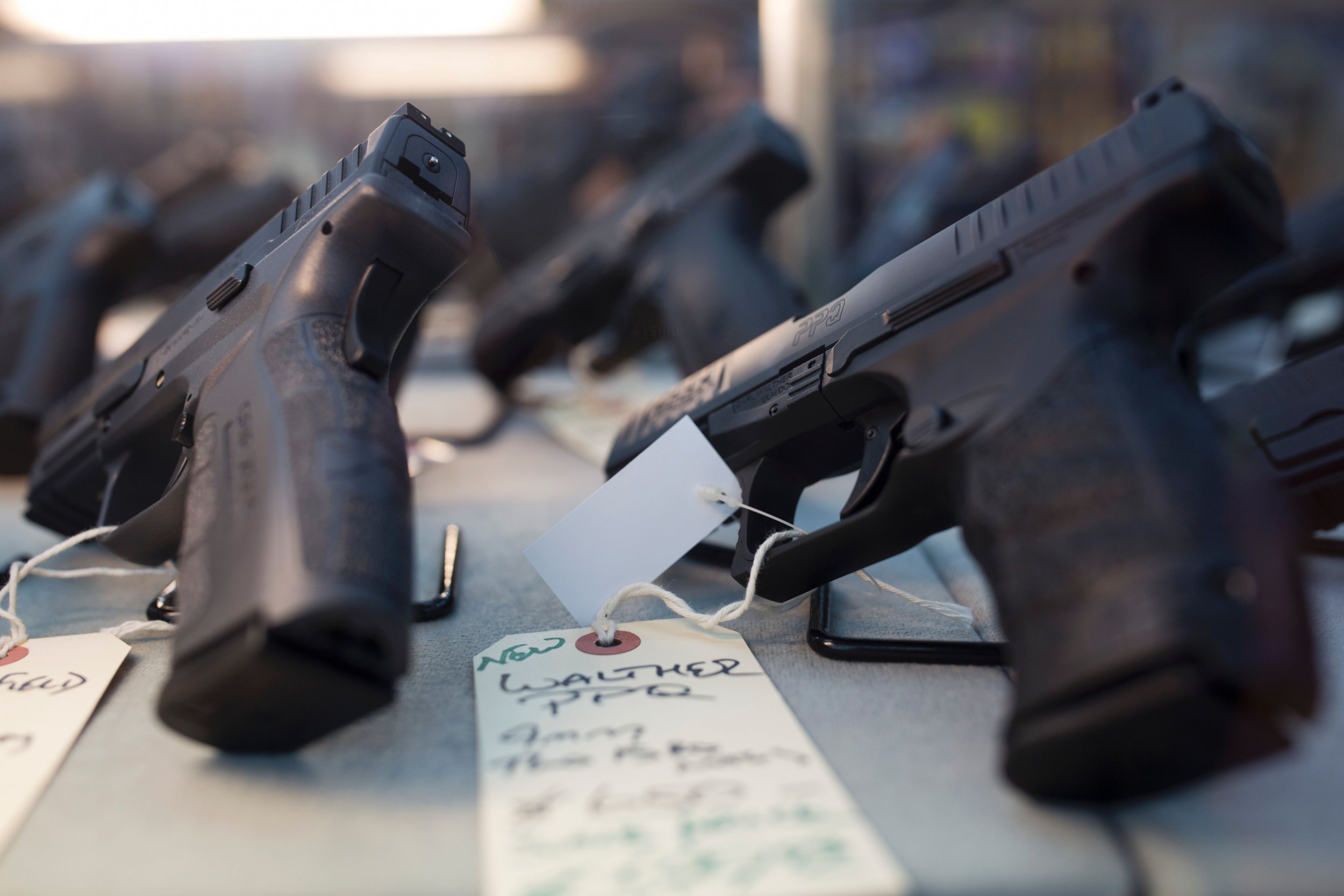
Making would-be gun owners wait just a few days between purchase and possession could dramatically reduce deaths from handgun violence, a new study found. More than 700 lives were saved per year by mandatory waiting period laws in the 17 states that have them, according to the report, published in Proceedings of the National Academy of Sciences this week. If the entire country were to have such laws, more than 900 gun violence deaths could be avoided every year, the researchers concluded. And that reduction would happen even if no other gun-regulating measures were adopted, the study notes.
Waiting period laws have strong support among advocates for federal gun regulations. The American Medical Association, which considers gun violence a public health crisis, favors a federally mandated waiting period. The Giffords Law Center to Prevent Gun Violence has also called for such laws, noting prior evidence that they reduce suicides in particular. And a recent Quinnipiac poll reported just last week found that 79 percent of voters surveyed favored waiting period laws.
In the new study, the researchers analyzed waiting period laws for handguns between 1970 and 2014. States with waiting period laws, which impose a delay usually between two and seven days, before a purchaser can take home his or her gun, had about 17 percent fewer homicides per year. The delay also reduced gun suicides by up to 11 percent—up to 35 fewer gun suicides per year per state.
The researchers also looked to history to examine the efficacy of waiting period laws. Between 1994 and 1998, the Brady Act, a federal law, required states to conduct background checks and impose a few-days lag time between purchase and possession. Some states were exempt, allowing the Harvard researchers to look at differences between exempt and non-exempt states. "We find that waiting periods led to large and statistically significant reductions in gun violence during the Brady interim period," the authors write.
"What we found is a law that doesn't take guns away from anybody, doesn't restrict anybody's right to own a gun, and yet can significantly reduce gun homicides," study co-author Deepak Malhotra, a professor of negotiation and conflict resolution at Harvard Business School, told The New York Times.
Michael Siegel, a professor of community health sciences at Boston University, who was not involved in the research, agreed that the study showed a "robust relationship" between the waiting laws, and both firearm homicide and suicide rates. He does point out some caveats. "It is not clear whether it is the waiting period itself or what happens during the waiting period (careful background checks, for example) that explain the reduction in firearm-related deaths," Siegel tells Newsweek via email. "Future research should try to tease out the the independent relationship of waiting periods, permit requirements, and background checks on firearm violence rates."
Conservative voices have come out strongly against the findings of the new study. David Kopel, an associate policy analyst at Cato Institute—a think tank founded by Charles Koch and other free market advocates who favor less, not more, government regulation (and amply fund politicians who agree with them)—says the evidence for waiting periods does not hold up. "People who acquire guns from stores (with or without a waiting period) are lawful owners, at least initially. Yet the study indicates that 17 percent of gun homicides are perpetrated by lawful gun owners within a few days of their buying a gun," Kopel told Newsweek via email. Support for waiting periods, says Kopel, who is also an adjunct law professor at the University of Denver, "is contrary to all real world-evidence."
"The study's claim is so wildly contrary to all known data about gun homicide that it is implausible," says Kopel.
He isn't alone in that perspective. "The study ignores the fact that there are very real cases where waiting periods have actually facilitated homicide," Erich Pratt, executive director of the rights organization Gun Owners of America, told CNN. He was referring to Carol Bowne, a New Jersey woman who was killed during the waiting to take home a gun she'd bought to protect her from the assailant.
There's currently no federally mandated handgun waiting policy in the U.S., but the American Medical Association supports a federally mandated handgun waiting policy in the U.S., in addition to other measures that could help prevent gun violence, which the organization recognizes as "a public health crisis."
SaveSaveSaveSave
SaveSave
SaveSave
SaveSave
Uncommon Knowledge
Newsweek is committed to challenging conventional wisdom and finding connections in the search for common ground.
Newsweek is committed to challenging conventional wisdom and finding connections in the search for common ground.
About the writer
To read how Newsweek uses AI as a newsroom tool, Click here.








